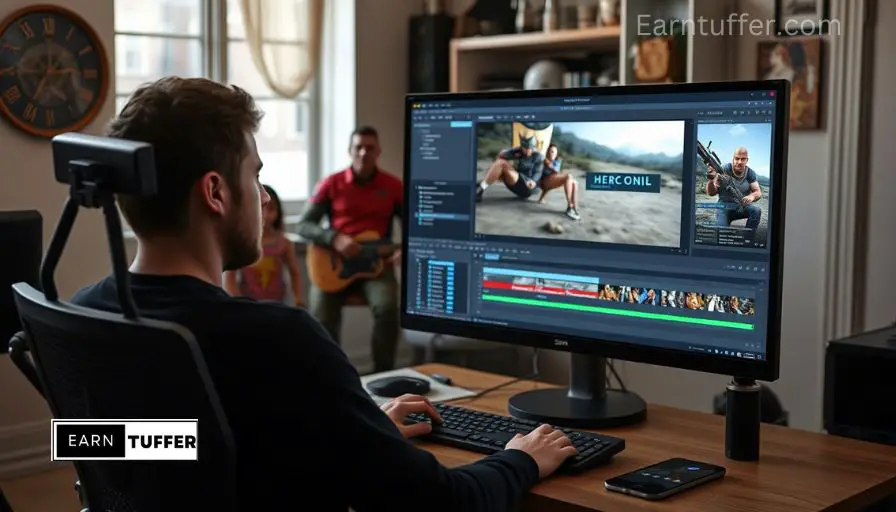SFM Compile is a critical process for creators using Source Filmmaker (SFM), Valve Corporation’s powerful animation toolset. Designed to convert raw assets—such as 3D models, animations, and textures—into optimized formats compatible with SFM, this toolchain is indispensable for producing high-quality cinematic sequences. Whether you’re a beginner or an expert, mastering SFM Compile ensures smoother workflows, reduced rendering times, and professional-grade results.
What Is SFM Compile?
SFM Compile refers to the preparation and conversion of assets into formats SFM can interpret. This includes compiling models (e.g., .FBX or .DMX files), animations, and textures into .mdl (model) or .vcd (animation) files. The process ensures assets are lightweight, compatible, and ready for animation projects.
Valve developed SFM Compile to streamline asset management for games like Team Fortress 2 and Counter-Strike: Global Offensive, but it has since become a staple for animators creating fan films, shorts, and mods.
Key Features of SFM Compile
Asset Optimization
SFM Compile reduces file sizes and optimizes rendering by converting high-poly models into game-ready formats. This minimizes lag during animation and improves performance.
Cross-Format Compatibility
It supports industry-standard formats like .FBX and .OBJ, making it accessible for creators using tools like Blender or Maya.
Automation Tools
Batch processing allows users to compile multiple assets simultaneously, saving time on large projects.
Customization
Advanced users can tweak parameters like texture resolution and collision meshes to fine-tune asset behavior in SFM.
Benefits of SFM Compile
Efficiency
Reduces load times by up to 40%, enabling smoother animation workflows.
Flexibility
Works seamlessly with SFM’s node-based graph system for complex scene setups.
Community Support
Integrates with popular SFM communities (e.g., Steam Workshop) for sharing compiled assets.
How to Use SFM Compile: A Step-by-Step Guide
Prepare Assets
Ensure models are UV-unwrapped, rigged, and textured in software like Blender or Maya.
Export to Supported Formats
Save files in .FBX or .DMX format, which SFM Compile can process.
Set Up SFM Compile
Use the Compile Tool in SFM or standalone GUIs like Crowbar to configure settings (e.g., texture paths, physics meshes).
Compile and Test
Run the compiler to generate .mdl files. Import them into SFM to check for errors like texture misalignment or rigging issues.
Optimize
Adjust LOD (Level of Detail) settings or simplify geometry if performance lags.
Advanced Tips for SFM Compile
Use Version Control
Track changes to assets to avoid compilation conflicts.
Leverage Templates
Pre-configured settings for games like TF2 ensure compatibility.
Debugging
Use SFM’s console logs to troubleshoot errors like missing textures.
Common Challenges and Solutions
Texture Errors
Ensure paths in .vmt files match compiled texture locations.
Rigging Issues
Verify bone hierarchies in 3D software align with SFM’s requirements.
Performance Drops
Simplify high-poly models or use lower-resolution textures.
Future Developments in SFM Compile
As SFM evolves, developers are focusing on:
-
Real-Time Collaboration: Cloud-based compiling for team projects.
-
AI-Assisted Optimization: Automated texture compression and mesh simplification.
-
VR Integration: Support for compiling assets in virtual reality environments.
FAQs About SFM Compile
Q1: What software do I need to compile assets for SFM?
Use Valve’s SFM toolkit or third-party tools like Crowbar or Blender Source Tools.
Q2: Can I compile custom animations?
Yes, using .vcd files exported from motion capture software or animation rigs.
Q3: Why does my model appear pink in SFM?
This indicates missing textures. Recheck .vmt file paths during compilation.
Q4: Is SFM Compile free?
Yes, it’s included with Source Filmmaker, available for free on Steam.
Q5: Can I compile assets for non-Valve games?
SFM Compile is optimized for Source Engine games, but modders sometimes adapt it for other projects.
Conclusion
SFM Compile is the backbone of Source Filmmaker animation, enabling creators to transform raw assets into cinematic masterpieces. By optimizing workflows, reducing errors, and fostering creativity, it empowers animators to push the boundaries of what’s possible in game-based storytelling. As tools evolve, mastering SFM Compile remains essential for anyone serious about SFM.
